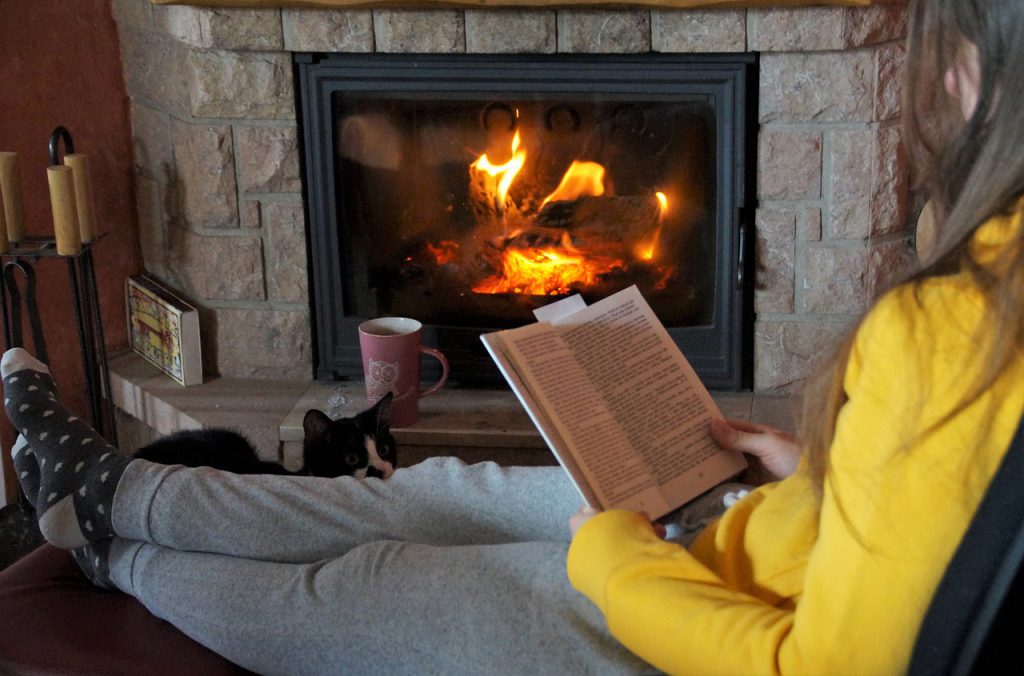Luckily for you, we have put together 9 tips to help you save money on your heating bills.
After the long cold winter of 2021/2022, you may find yourself thinking of ways to prepare for the next one. Many of us felt the effects of snowfall, freezing temperatures and heavy rain. With heating prices going up, there’s no surprise that homeowners struggled to stay warm and comfortable during the coldest time of year.
1. Bleed Your Radiators
Cheap heating is easy to achieve if you know how. Bleeding your radiators is a quick and simple task, which you can do yourself with no extra cost. Make sure you turn the heating off before you start. Then place the flat head into the bleed valve. Simply turn it anticlockwise to open the valve and then back the other way to close it again. It’s important to hold an old cloth underneath the bleed valve to open it and catch any water that escapes. Bleeding your radiators is one of the cheap ways to heat a house can help you to improve the energy efficiency of your home heating and ultimately save you money!
2. Don’t Block Radiators
Another one of the cheap ways to heat a house is to avoid blocking the radiator. Because a radiator is fixed to a wall, it can be tempting to make the most of your space and place furniture in front of it. Anything which is placed in front of a radiator will stop the heat from circulating around the room. This can trick you into think you’re home isn’t warm enough, and as a result you could feel the need to turn up your home heating system.
3. Close Your Curtains
Closing your curtains will act as barrier between the cold air that could possibly be coming in through your windows and entering your home. Closing your curtains is a temporary fix for replacing your old windows with new thermally efficient ones. Another one of the cheap ways to heat is house is by closing your curtains and tucking them behind your radiator so they aren’t blocking the heat from your radiator.
4. Save On Your Energy Bills
There are many cheap ways to heat a house and solutions to saving your energy bills and increase the energy efficiency of your home heating. One of the main ways to do this is by cutting the costs of your electric and gas appliances. For example, taking shorter showers or turning the television off rather than leaving it on standby will make a huge difference.
Another way to save on your energy bills is by simply switching to the cheapest energy company. This may seem like an obvious one, but it’s surprising how many homeowners will just stick with the same energy company despite rising prices, because the hassle of switching seems too much. Have a look around, gather a few quotes and you will be saving hundreds in no time.
5. Buy An Extra Rug Or Two
A new, cosy rug would usually be considered an extra design element to your living room or bedroom, but during the colder months they are often used as one of the cheap ways to heat a house and extra layer of insulation to help keep the cold air at bay. They are incredibly useful for creating a warmer space and helping you save some cash.
6. Keep Your Pipes Protected
There are many cheap ways to heat a house. For example, pipes may sometimes be prone to freezing in the cold weather. To prevent this and potentially reduce heat loss from the hot water pipes, you can cover them with foam. This should help to stop them from freezing, allowing you prevent the problem from happening and save money.
7. Clean Your Radiators
Next time your heating is on, feel around for cold spots at the bottom of your radiators. This could be causing a build-up of sludge in the system. This stops the hot water from circulating properly, and could potentially stop the heaters from working. Be sure to check for these cold spots and give your radiators a good clean to ensure they are working at their best.
8. Check Your Loft Insulation
Did you know that around a quarter of home heating is lost through poor insulated spaces? So it’s important to check the depth of your loft insulation, the recommended depth is around 200mm.
9. Invest In A New Boiler
The average life expectancy of a new boiler is between 10 and 15 years, so if your boiler is older than this, you may be experiencing problems with it and it could be time to get a new one. Even if your boiler is well maintained, replacing your boiler now because issues become worse will save you lots of money in home heating for the long term. There are many grants for new boilers available, check your eligibility today!
We hope that our home heating tips can help you to achieve low energy bills and a thermally efficient home!

